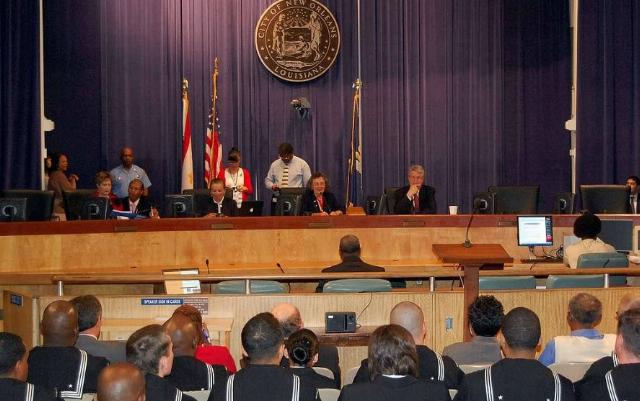Local government still works
As the dust settles on both party conventions, the nation braces for the final stretch of a high-stakes presidential election barreling towards election day. Yet, with another government shutdown looming, a paltry 39.7% lame-duck presidential approval rating, and sustained record-low trust in government for over a decade, Americans find themselves disillusioned with the gridlock of Washington politics.
Despite all this, our system of federalism is providing stability in our own backyards. Local governments, often overlooked, are proving to be the true innovators in providing governance tailored to our individual needs. It’s time we put our faith in them first this November by looking beyond the top of the ballot and toward the improvements that can be made closer to home.
The United States is a rich cacophony of 90,837 local government entities, each tasked with providing essential services, guiding future development, and maintaining critical infrastructure that affects our daily lives. These local governments operate like a network of interconnected Petri dishes, constantly testing and refining best practices for communities with similar challenges, demographics, or goals. The American democratic experiment works because we have thousands of governments diligently in pursuit of improving the status and state of their local community. For federalism to succeed, local communities must be both responsive to constituents and bold in their innovations. As Thomas Jefferson aptly stated, “The government closest to the people serves the people best.”
The lives of the American people are diverse, so our governments cannot be one-size-fits-all. Local governments are tackling national issues at a community scale. As national politics turn towards housing policy, some municipalities are paving their own solutions. For example, Minneapolis became the first major U.S. city to permit diverse housing typologies in every zoning district, from single-family homes to small multifamily buildings. The result was that while the cost of rent increased an average of 31% nationwide, Minneapolis has seen just a 1% increase since 2017.
Furthermore, national conversations on Universal Basic Income remain controversial -- a 2020 Pew Research Center survey found that 54% of Americans oppose the concept. However, policymakers can look towards the real-life example of Stockton, California’s UBI trial as a case for further study. This is the essence of federalism: a system where power is distributed, enabling localities to thrive through innovation and competition. Local governments serve as incubators for policy experimentation, with successful initiatives often being scaled up or adapted by neighboring jurisdictions, fostering a dynamic environment of continuous improvement.
The proximity of differing political perspectives and policies across municipal boundaries allows residents to see firsthand the outcomes of various approaches. They can easily compare the number of potholes, the cleanliness of the streets, and the quality of education, enabling them to make informed judgments about the value of the taxes they pay. In 2022, the U.S. Census Bureau recorded that 53.5% of movers moved within the same county, sometimes moving across smaller municipal borders. Of those movers, 4.7% “sought neighborhood improvements,” such as lower crime or better schools. If the local ballot box continually disappoints, residents’ most powerful tool is their ability to vote with their feet. If one perceives better opportunities or services in a neighboring municipality, they may choose to relocate. Similarly, businesses seek out locations where taxes are low, services are responsive, and infrastructure is well-maintained.
This ability to choose has yielded that trust in local government remains robust, with “67% of Americans expressing confidence in their local government’s ability to handle local problems,” compared to only 32% who trust the U.S. Congress. This trust underscores the efficacy of local governance as a living manifestation of the American political system, a system that thrives on the free pursuit of rigorous political debate regarding local issues. Alexis de Tocqueville further emphasized that “municipal institutions are to liberty what primary schools are to science; they bring it within the people’s reach, they teach men how to use and how to enjoy it.”
Today, many local elections are overshadowed by national political rhetoric. Yet, our faith in local government institutions remains strong. We would be better off investing more time and energy in school board and town council elections than fretting over who is on the presidential ticket.
Jarrett James Lash, a Young Voices contributor, covers the impact of housing markets, land use, and policy on the communities we live in. His X/Twitter is @jarrett_lash

Image: Defvense Visual Information Distribution Service
FOLLOW US ON
Recent Articles
- The Death of the Center-Left in America
- ‘Make Peace, You Fools! What Else Can You Do?’
- When Nuclear Regulation Goes Awry
- The Danger of Nothing
- A New Pope With Courage
- Not in Kansas Any More
- Democrats Dying on the Most Desolate Hills
- If She’s an Astronaut … I’m a Jet Fighter Pilot
- Is the Jihadist Trojan Horse Winning?
- Who Has the Best American Autobiography?
Blog Posts
- Celebrate Earth Day by not burning a Tesla
- Minnesota state bureaucrat charged with vandalizing Teslas to the tune of $20,000 is let off scot-free
- Trump’s plan for Gaza vs. the New York Times
- What’s next for Syria?
- Tulsi Gabbard's latest Biden revelation
- Mexican ammo wranglers
- Rep. Jamie 'Maryland Man' Raskin also threatens Trump supporters
- The eight narrative fallacies that drive American politics
- Summertime reality twisted into climate exasperation
- Life discovered on a distant planet?
- The answer is not blowing in the wind
- Letitia James: it's either/or
- Harvard elitism meets Donald Trump
- The GEC is finally more than mostly dead
- We're not the same






